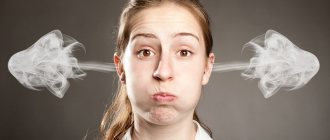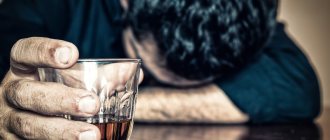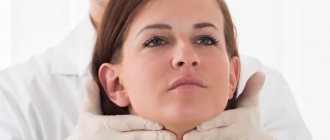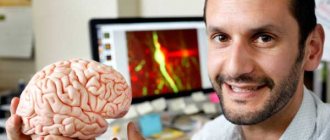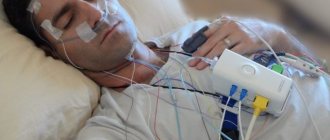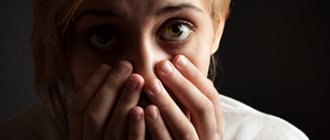Depression is quite common and not everyone can cope with it. There are many treatment options, but according to experts, sleep deprivation for depression is usually used when the patient is refractory to drug treatment. This method, sometimes, allows you to get a person out of depression as quickly as possible and restore sleep patterns.
Sleep deprivation for depression is forced or voluntary sleep deprivation. It forces the body to experience severe stress in order to improve its health.
Swiss scientist Walter Schulte proved in 1966 that this method is very effective and treats sleep disorders and depression.
Most often, deprivation is prescribed for manic-depressive psychosis, schizophrenia and neurotic depression. According to statistics, these patients are most often cured of their illnesses with the help of deprivation. Although much depends on the characteristics of the body and the severity of the disease. It is believed that the more severe the disease, the more effective the method.
Features of the problem
Depression is a mental disorder that is always accompanied by a bad mood, as well as a number of other symptoms.
A person faced with such a phenomenon becomes completely disappointed in his life and loses all motivation for further action. The exact manifestation of the disorder depends on its severity. Insomnia is a sleep disorder that leads to its lack and poor quality. If a person does not sleep as much as his body requires, then he will develop unpleasant symptoms that will inevitably harm his daily life and performance.
With depression, patients experience increased brain activity, which is associated with endless thoughts about problems or worries. This excited state persists even at night. This is what prevents the brain from relaxing. Also, during depression, disruptions occur that disrupt the biochemical balance, which leads to a loss of satisfaction with sleep.
Dreams
With depression, the nature of dreams changes. A person begins to have similar dreams, most of them leave an unpleasant aftertaste after waking up. Their appearance disappears along with the cure of depression and insomnia.
Dreams depend on the type of depression:
- Dreary. Dreams are quite rare, but painful, particularly gloomy, always similar to each other, and often reflect past failures.
- Apathetic. Dreams are rare, very poorly remembered, no aftertaste is felt after them upon awakening, and they are almost always emotionally dry.
- Anxious. During one dream, quite a few plots can change, all connected with the future, most often showing threats or disasters.
With very frequent disturbing dreams, a person may experience increased insomnia, which will be associated with a strong fear of new unpleasant sensations. With other types of depression, dreams may be completely absent.
Character of sleep
Insomnia during the blues can manifest itself in different ways. Inability to fall asleep, frequent awakenings in the middle of the night, shallow sleep, getting up early, phase disruptions - all this can become part of every person’s life. Sleep disturbances in depression depend on its type:
- Endogenous. Falling asleep occurs quickly, but then the person wakes up. Awakening is accompanied by a feeling of fear. After this, it is no longer possible to fall asleep again, but sometimes the patient begins to doze off.
- Dreary. The patient falls asleep with difficulty, and sleep is very superficial. Waking up occurs earlier than planned, and you can’t fall asleep again.
- Masked. A person falls asleep quite easily, but wakes up regularly at night, with the final awakening occurring earlier than planned. The morning is accompanied by a lack of vitality.
- Anxious. When closing his eyes, the patient does not fall asleep; he lies for a very long time, but after a while he still manages to fall asleep. Sleep is very poor, the person often wakes up, full awakening occurs in the morning long before the alarm clock.
- Seasonal. The person falls asleep normally, the sleep is very long, but does not bring a feeling of satisfaction and relaxation. The patient becomes sleepy during the day.
- Apathetic. Falling asleep occurs in the usual way, a person sleeps quite soundly, but waking up is very difficult for him. Even after getting up and sleeping for a long time, he may experience a feeling of lack of sleep.
Insomnia during depression can be either temporary or permanent. In both cases it requires medical consultation with treatment.
Before visiting a doctor, you need to monitor your insomnia in order to be able to give him the most detailed information about your condition.
Deprivation and various diseases: what is the connection
Deprivation has been actively used by psychotherapists to treat depression since the 80s. Since then, experiments have been conducted annually to confirm the safety and effectiveness of chronic sleep deprivation or complete lack of sleep.
- Diabetes. In the absence of adequate sleep, the process of glucose digestion slows down, as well as a disruption in the production of hormones. Therefore, there is an opinion that deprivation leads to the development of endocrine gland pathologies.
- Alzheimer's and Parkinson's. If a person goes without sleep for a long time, the brain cells swell and toxins accumulate in them. The functioning of the cerebrospinal fluid system is disrupted, which leads to the accumulation of cerebrospinal fluid in the ventricles. All this provokes the development of neurodegenerative diseases.
- Injuries. If coordination in the work of the body is impaired due to wear and tear, a person can independently injure himself. Therefore, psychotherapists do not recommend driving or using electrical appliances while treating depression using deprivation.
Clouding of consciousness and the presence of hallucinations lead to many serious consequences. A person in this state is not responsible for his actions, he does not eat, does not drink, and ceases to feel the urge to go to the toilet.
Treatment of depressed mood and depression using sleep deprivation is effective. It is carried out under the supervision of specialists; in parallel, the patient is prescribed antidepressants. If you are experiencing writer's block, you can practice staying awake for 36 hours, but no more than once a week.
Causes and provoking factors
There are many reasons why a depressed state appears and develops:
- strong feelings associated with moving, loss of a loved one, social, economic status;
- overwork;
- health problems;
- experience of violence;
- peer pressure;
- hormonal changes;
- some diseases;
- alcohol abuse, drugs;
- medicines.
Factors in the development of the disorder:
- Age. Older people are more likely to experience depression. This may be due to a decrease in the production of the happiness hormone - serotonin.
- Floor. Women are more prone to depression, but it can be more severe in men.
- Social status. Middle-income people are more resistant to negative psychological influences than poor or very rich people.
- Individual characteristics. Psychological trauma suffered in childhood, introversion, genetic predisposition, health, family support, character traits.
- Features of modern life. High pace, lack of physical activity, a large number of people around, “loneliness in the crowd.”
Consequences
The causes and factors of the occurrence and development of depression are very diverse. As, indeed, are its manifestations. However, one manifestation of depression deserves special attention. These are sleep disorders. According to scientists, 80% of people experiencing depression face this problem.
The underlying causes of depression, primarily stress, prevent you from getting a good night's sleep. In the morning, without sufficient rest, everything falls out of a person’s hands, he begins to get nervous. While awake, he continues to think about his worries, becoming fixated on them.
Why this method works
Our body functions in accordance with certain biological rhythms: daily, monthly, seasonal, annual. For example, the 24-hour circadian rhythm is governed by sleep patterns, changes in appetite, body temperature, heart rate, blood pressure, and changes in metabolism. Read more about circadian rhythms >>>
In a healthy person, all periodically occurring processes are strictly coordinated and synchronized. And in a state of depression, the normal rhythm of many periodically occurring processes is disrupted: - a characteristic symptom of depression is often insomnia; — women usually experience menstrual irregularities; — diurnal changes in mental state during depression also, as a rule, have their own characteristic rhythm: most often in the morning, melancholy and lethargy are more pronounced, appetite is more reduced, and in the evening the severity of depressive symptoms usually decreases.
All this suggests that one of the pathogenetic mechanisms of the depressive state is the mismatch and desynchronization of cyclically occurring biochemical and physiological processes. Sleep deprivation is an attempt to restore their coherence, to resynchronize, changing the order of important biological rhythms. And this attempt is very often crowned with success.
………………………………..
All articles > Sleep disorders > Sleep disorders and depression
………………………………… Depression and sleep disorders >>> Causes of depression and sleep >>>
Symptoms
The main symptoms of insomnia due to depression are problems sleeping. But mental disorder and regular lack of sleep always lead to other unpleasant symptoms that affect the health, well-being and behavior of the patient. Most of all, they affect the emotional sphere, which makes a person very irritable and often has a negative impact on his relationships with loved ones. Therefore, treatment for any insomnia associated with depression should also address the symptoms.
How exactly can insomnia manifest itself:
- Sleep disturbances – the inability to get full sleep and get satisfaction from sleep;
- Drowsiness – desire to sleep during the day, foggy thinking;
- Neurosis – irritability, touchiness, anxiety;
- Apathy – complete indifference towards favorite things, reluctance to communicate;
- Bad mood – constant sadness, depression, tearfulness;
- Decreased performance – memory impairment, inattention;
- Loss of motivation – loss of desires, lack of goals, abandonment of responsibilities;
- Lethargy is constant weakness, lack of strength to perform usual actions.
Sometimes the patient experiences other symptoms. This may be due to the course of depression or insomnia, as well as the presence of other pathologies.
Basic treatment
Many people themselves know how to cure insomnia due to depression. As a rule, they use traditional methods for therapy, which involve taking various infusions, tinctures or decoctions that have a positive effect on sleep and mental state. This method of therapy is quite effective, but it is best to consult a doctor and take medication. It allows you to achieve the best results.
Drug therapy
In most cases, when depression is combined with insomnia, patients are prescribed antidepressant pills and sleeping pills. Sedatives or tranquilizers may also sometimes be prescribed. The main goal of treatment is to eliminate depression and normalize sleep, which is achieved by artificially increasing mood and suppressing all anxiety symptoms.
Which tablets can be prescribed to patients:
- Antidepressants (Prozac, Trazodone, Valdoxan, Fevarin). They suppress most symptoms of depression, making a person's mood positive.
- Sleeping pills (Sonata, Ambien, Circadin). Drugs in this group have a calming and hypnotic effect, help you fall asleep faster, improve sleep quality, and eliminate early awakening.
- Sedatives, tranquilizers (Novo-Passit, Phenazepam). They reduce the manifestation of depressive neuroses, normalize the state of the psyche, calm the body, helping to fall asleep better.
Homeopathic medicines can also be used. They help get rid of almost all symptoms of depression and normalize the patient’s sleep. Most medications have no side effects, making them safe for all people. The most popular:
- "Sonylux";
- "Ignacia";
- "Aurum metallicum".
You can achieve an effect with the help of medications within a few days of using them. However, the full course of treatment can take up to several months.
Folk remedies
Many generations have been convinced of the effectiveness of folk remedies. Over the entire period of their use, it was possible to identify the safest and most useful plants that are good for insomnia and depression, which occur together.
How to restore sleep during depression using traditional medicine recipes:
- Mix valerian rhizomes, motherwort, mint, mistletoe and hawthorn flowers (10 g each). Take a small part of the whole mixture (1 tbsp), pour boiling water (200 ml), and leave for half an hour. Take one glass in the morning and evening.
- Pour water (300 ml) over chamomile flowers (25 g), put on fire, boil for 5 minutes. After 15 minutes of infusion, the decoction can be drunk. Take it before bedtime, adding a little honey.
- Pour oregano (10 g) with valerian rhizomes (5 g) with water (150 ml), boil for about 10 minutes. The drink is infused for one hour. You should drink 100 ml before bedtime.
- Boil a mixture of motherwort, thyme and calendula flowers (10 g) in clean water (200 ml), let the broth brew for one hour. Take one glass with a small amount of honey in the evening shortly before bed.
- Pour boiling water (100 ml) over dill (1 tbsp) and leave in a closed container for 2 hours. Drink half a glass on an empty stomach and before bedtime.
Such recipes not only have a therapeutic effect that appears after some time, but also a one-time effect. Therefore, with their help, you will be able to fall asleep immediately when a sleep problem occurs.
If taking pills or folk remedies causes a deterioration in your health, you should consult a doctor. Side effects can be dangerous.
What other types of deprivation exist?
Sensory (from Latin Sensus - “feeling”).
This is the deprivation of stimuli to our senses. It can be visual, gustatory, auditory, sexual, etc. It can be used in a positive way for a short time.
Sometimes we protect ourselves from sounds in order to be a little quiet. Close your eyes (or put on a blindfold) and rest. Similar elements are used during yoga and meditation, as well as in alternative medicine.
On the other hand, imagine a deaf or blind person. How will his personality change over time? Losing any sense organ is a tragedy! The famous Beethoven became deaf from a chronic ear disease. Hearing loss for a composer! It’s good that he didn’t fall into depression and came out of the situation masterfully, perceiving sounds through vibration. The result could be more disastrous in the form of personality changes (deformation, degradation, withdrawal into oneself) and even unauthorized deprivation of life.
Sensory deprivation in children
It is especially pronounced among pupils of boarding schools and orphanages. There are no loving parents nearby and no tactile contact with the mother. Lack of hugs has a bad effect on a baby's development. Children under 3 years old are very sensitive to such things.
We also recommend that you read the article: Sleep and wakefulness: cycle disturbances, causes, treatment
For their development (and subsequently psychological well-being), bright positive emotions and a feeling of love from loved ones are necessary.
It happens that in a seemingly prosperous family, “problematic” individuals grow up. For example, the mother often scolded her daughter, did not praise her, was cold, and the father practically did not raise her. Having reached conscious age, the girl began to satisfy the need for “love” through promiscuous sexual relations. Or she fell into other forms of deviant behavior (sects, groups, etc.). A striking and tragic example is the Spanish model Isabella Caro. As a child, she was attacked by her mother, who considered her fat. The girl stopped eating. She subsequently struggled with anorexia, but was never able to overcome it and died at the age of 28. The roots of most psychological problems are in childhood.
Food deprivation
Many people leading a healthy lifestyle practice “therapeutic fasting” by deliberately refusing to eat. Pranoeaters claim that they do not eat food at all, but feed on “prana,” the energy of the sun. In official medicine, complete fasting is used only in a few cases, for some time after major operations and in acute pancreatitis. Food deprivation is stress for the body. Suffice it to recall the consequences of famine caused by wars and natural disasters.
There is another psychological background here. The result of the practice of refusing to eat can be an eating disorder (bulimia, anorexia). A vicious circle is formed when periods of a strict diet are replaced by breakdowns and gluttony.
Cognitive deprivation
This is a lack of information or its chaos. A person is not able to soberly assess the current situation and begins to interpret it incorrectly. The result is misunderstanding and conflicts between people, professional mistakes.
Emotional deprivation
Lack or absence of emotional contacts. Let's return to the example of an orphanage child. He will be psychologically traumatized for life because he has maternal and paternal deprivation. Maybe in the future he will have a loving wife and children. But no one can replace the once absent love of parents.
Motor deprivation
Unfortunately, people meet her everywhere. Injuries and diseases requiring bed rest, paresis and paralysis after strokes. Depending on the duration of deprivation, personality changes occur.
Social deprivation
Isolation from society. There are several types:
- Voluntary (hermits, monks)
- Forced (prison, army)
- Forced (plane crash, ship sinking)
- Voluntary-compulsory (sports school, Suvorov military school)
Existential deprivation
From lat. existentio "existence". The concept of purpose and meaning of life, loneliness, finding oneself. It differs at different age periods. If a young person wants to realize himself more quickly, then at the age of 40 the results of self-realization are assessed.
Educational deprivation
Inability to get an education, lack of conditions for normal study and unlocking the student’s potential. As a result, the desire to learn decreases.
Features in children
It is known that the period of childhood determines the entire subsequent life of a person. Emotional connections formed from infancy trigger the correct mechanisms for regulating behavior in the future. The main differences from deprivation in adults are:
- Severe consequences of deprivation of something. Psychological traumas are formed that will affect further development. Why is the proportion of offenses (and deviant behavior) so high among graduates of boarding schools? Because over the years they have experienced maternal, paternal, family and other types of deprivation.
- There are no compensatory mechanisms. An adult can, if deprived of something, find a way out of the situation (remember Beethoven), but a child cannot.
- More needs. First of all, in parental love, communication, emotions.
- More difficult (or impossible) to correct consequences.
Depression, sleep and everything connected with it
So, depression is usually called a long-term and depressed state of mind of a person. With depression, we usually think about how to improve our shaken mental balance and how to quickly return to our usual state of inner comfort. Depression disrupts sleep, manifesting itself with feelings of hopelessness, apathy and, of course, depression.
“I don’t want anything at all. The eyes are empty. I am tormented by my emptiness, I have no desires at all, everything is done only because it HAS to! I just want to sleep and not have anyone touch me. Is my obsessive sleep related to depression?
Insomnia and depression and depression and drowsiness are like two brothers - they always go hand in hand. In one case, sleep with depression becomes obsessive to such an extent that a person sleeps 12-16 hours a day. At the same time, he still does not get enough sleep, feels depressed and does not mind sleeping during the day. In the second case, depression provokes poor sleep, that is, it gives rise to insomnia. There is nothing good here either, because not everyone is able to walk around broken all day and even work.
The symptoms of true long-term depression are approximately the same for everyone. This is apathy, a feeling of the meaninglessness of life. Feeling of inner emptiness and hopelessness. And in especially severe cases, suicidal thoughts. And of course, depression affects sleep: for some it leads to constant drowsiness, for others it affects insomnia.
What do we do when we are faced with the acute question of how to improve sleep during depression? Of course, we look for reviews from other people on the Internet. We are trying to understand whether there is a need for treatment, and in general why sleep is disturbed during depression?
Patient preparation
Electroencephalography with sleep deprivation is performed under the following conditions:
- With bright lights on and off.
- With a loud sound.
- When breathing deeply.
- While falling asleep after sleep deprivation.
How to prepare for an EEG with sleep deprivation? The main point is compliance with all doctor’s instructions. It is important to continue taking medications prescribed by a specialist. 12 hours before the procedure, you must avoid energy drinks, coffee and other stimulants. Before the procedure, you must wash your hair without using masks, balms or oils - otherwise the contact of the electrodes with the skin will be weaker. The patient should be calm and not nervous during the procedure.
Sleep deprivation for depression: preparation and implementation, consequences, reviews on Diet4Health.ru.
Our life consists of everyday little things that in one way or another affect our well-being, mood and productivity. I didn’t get enough sleep - my head hurts; I drank coffee to improve the situation and cheer myself up - I became irritable. I really want to foresee everything, but I just can’t. Moreover, everyone around, as usual, gives advice: gluten in bread - don’t go near it, it will kill you; A chocolate bar in your pocket is a direct path to tooth loss. We collect the most popular questions about health, nutrition, diseases and give answers to them that will allow you to better understand what is good for your health.
Sleep deprivation for depression
It is obvious that any sound person who has fallen into the trap of prolonged depression is not ready to simply accept his situation. Trying to understand why sleep is disturbed and how to get our heads back in place, we go online in search of salvation. There we come across numerous reviews from people facing the same problem.
“It’s always bad after sleep, especially during the day. I can’t sleep, I pass out, and I wake up - such a depressive state, I have no strength, everything is disgusting. It feels like sleep only makes depression worse..."
Modern medicine offers different ways to treat sleep disorders. In articles devoted to this, we see various tips on how to improve sleep if you are depressed. The most common of them are to drink soothing herbal infusions (or use other folk remedies for depression), take walks in the fresh air before bed, use the bed only for sleeping, and not just lie on it, so as not to associate it with wakefulness. Yoga for depression and many other methods are offered. However, standard advice that circulates on the Internet, even in the form of serious scientific articles, is not enough to confidently overcome sleep problems.
For more severe forms of sleep disturbance, it is recommended to consult a specialist and undergo a course of psychotherapy with simultaneous drug treatment. One of the effective ways to eliminate the effect of depression on sleep is sleep deprivation.
Sleep deprivation for depression is a method of partially avoiding sleep, for example, for 1-2 nights a week. It is believed that controlled sleep deprivation can eliminate symptoms of depression and apathy. Judging by the reviews of living people on the Internet, this method sometimes helps restore healthy sleep, but does not solve the very cause of depression. In addition, this method does not answer the key question - why is sleep disrupted?
For two decades, Francesco Benedetti, head of the department of psychiatry and clinical psychobiology at the San Raffaele Hospital in Milan, has been researching so-called wake therapy, combined with exposure to bright light and lithium, as a treatment for depression in cases where pills do not help. Following him, psychiatrists in the USA, then Great Britain and other European countries begin to pay attention to the method, using their own variations of such treatment in clinics. This “chronotherapy” appears to work—it starts the inert biological clock. In addition, treatment sheds new light on the pathology underlying depression and sleep functioning more generally.
However, medications such as Prozac have rarely been tested on people with bipolar disorder. Benedetti has since learned through bitter experience that in the case of bipolar patients, antidepressants are in most cases ineffective.
Benedetti's patients were desperate for an alternative to such pills, and his boss, Enrico Smeraldi, had an idea in reserve. After reading a number of early papers on the topic of sleep deprivation therapy, he tested the theories on his own patients and obtained positive results. “We realized it worked,” Benedetti recalls. “Patients with terrible medical histories immediately felt better. My job was to build on this improvement."
He and his colleagues turned to scientific literature for ideas. Some American studies have suggested that lithium may prolong the effects of sleep deprivation and have examined this issue.
“This can be thought of not as depriving people of sleep, but as a modified or extended period of wakefulness of 24 to 48 hours,” Benedetti says. “People go to bed two nights into the third, but when they finally fall asleep, they can sleep as long as they want.”
The San Raffaele Hospital first introduced triple chronotherapy in 1996. Since then, it has treated nearly a thousand patients with bipolar depression in this way—many of whom did not respond to antidepressant treatment. The results speak for themselves: in the most recent data, 70% of patients with drug-resistant bipolar depression responded positively to triple chronotherapy within a week, and 55% showed sustained improvement after a month.
“When a person is severely depressed, their circadian rhythms are flat, melatonin does not rise in the morning, and cortisol does not fall in the evening as it should.”
Steinn Stengrimsson, a psychiatrist at the University Hospital in Gothenburg, Sweden, explains. He is currently conducting a trial of wakefulness therapy.
Healing from depression is associated with the normalization of these cycles. “I think depression may be one consequence of this flattening of circadian rhythms and homeostasis in the brain,” Benedetti says. “By depriving depressed patients of sleep, we restore the cyclical process.”
But how does this recovery happen? It is possible that depressed patients simply need this desire to sleep to jump-start a sluggish system. The urge to sleep is thought to occur due to the gradual release of adenosine in the brain. It accumulates throughout the day and attaches to adenosine receptors in neurons, causing a person to feel drowsy. Drugs that target these receptors have the same effect, while drugs that block them, such as caffeine, discourage sleep.
To find out whether this process underlies the antidepressant effect of prolonged wakefulness, scientists from Tufts University in Massachusetts injected mice with symptoms of depression with a substance that stimulates adenosine receptors - mimicking what happens during sleep deprivation. After 12 hours, the rodents felt better - scientists found this out by measuring how much time they spent trying to escape if they were forced to swim or hung by their tails.
Such therapy can also serve as prevention: Recent research suggests that teens whose parents manage to insist on an earlier bedtime are at lower risk of depression and less likely to experience suicidal thoughts.
As with light therapy and sleep deprivation, the exact mechanism is unclear, but researchers believe that greater overlap between sleep timing and the natural light-dark cycle makes a big difference.
However, “phase-advanced sleep” is not yet widely used. Stewart admits it's not for everyone. “In the case of those with whom it works, it is a miraculous healing. But, just like Prozac, it doesn’t make everyone feel better,” he agrees. “My problem is that I can’t know in advance who it will help and who it won’t.”
Depression can affect anyone, but we are seeing increasing evidence that genetic variations that can disrupt the circadian system make some more vulnerable. Certain changes in clock genes have been linked to an increased risk of mood disorders.
Stress can also complicate the problem. Our response to it is largely controlled by the hormone cortisol, which is tightly regulated by circadian rhythms, but cortisol itself directly influences the setting of our circadian clock.
Mechanism of therapy
The duration of wakefulness must be increased to 36 hours. That is, after waking up, a person does not go to bed for 1.5 days. The next day, in the evening, the patient falls asleep at the usual time and sleeps for at least 10 hours. Improvement in well-being and reduction in signs of depression occurs after the first stage of wakefulness. But in order to strengthen the positive result and maintain it, it is necessary to conduct about 6 deprivation sessions. In the first and second weeks, conduct 2 sessions, reducing their number to 1 every 7 days as improvements appear.
Types of procedure
Sleep deprivation in depression is divided into three main types.
Among them are:
- total. The procedure involves sleep deprivation for 36-40 hours. This method is the most difficult, as sleep is suppressed, leading to various consequences. During the first week, it is necessary to carry out the procedure twice, then weekly for a month;
- partial. Partial sleep deprivation consists of reducing its duration to critical levels. Rest during the day should not last more than 4 hours. The body begins to get used to this regime, and weakness disappears within 4-5 days. Less often, longer periods of time are required;
- REM stage. This technique is referred to as paradoxical sleep with the absence of high brain activity. Its essence lies in the fact that the treatment of depression with sleep is carried out with the elimination of the rapid stage. Special sensors are attached to the patient, which signal a change in phases of brain function. When a signal is received, the patient must be awakened. The technique is more effective than others, but it requires special equipment.
Indications for use
Deprivation must be approved by a specialist. Self-medication in this case is unacceptable and can lead to very disastrous consequences.
Sleep deprivation is advisable in the following cases:
- In order to eliminate clinical depression. If the patient experiences frequent relapses of depression, the specialist may resort to deprivation. In this case, it is necessary to carefully monitor the patient’s condition, because after improvement, significant deterioration may occur. Sleep deprivation in this case should be carried out under the strict guidance of a specialist.
- Presence of systematic confusion. Patients with depression often feel like helpless puppets in the hands of an unfair fate. They are confused and incapable of taking active actions. Properly carried out deprivation allows such people to relax and improve their condition.
- Loss of identity. A very serious condition in which a person may experience significant problems in his professional activities and personal life. Intentionally not sleeping for a certain period of time will allow such a person to gain confidence and improve his mood.
- Increased irritability. Unconditional outbursts of aggression can make a person a real outcast. In this case, the sleep deprivation procedure allows you to normalize the condition and achieve internal harmony.
- Presence of memory lapses. This does not always happen due to the development of a tumor in the patient’s brain or due to his alcohol abuse. Periodic loss of consciousness can also be observed during prolonged depression, and such a symptom is very alarming. With timely sleep deprivation, it is possible to either completely get rid of this problem or minimize it.
- Psychoses. It is not always with depression that the patient becomes lethargic and indifferent. Some people, against the background of depression, develop hatred towards themselves and the world around them. Sleep deprivation allows such patients to find calm.
- Paranoia. This type of disease cannot be overcome through sleep deprivation. This technique can be used as an accompanying therapy. Paranoia should be treated in specialized institutions using medications.
It should be understood that no one is immune from depression. Even the most balanced person can be thrown off track when faced with a difficult situation. And the sooner a person with depression turns to a specialist, the better.
Contraindications to the procedure
In case of serious mental disorders, sleep deprivation is contraindicated
Treatment of depression with sleep deprivation is prohibited in the following cases:
- Drive often if necessary. If a person’s activity is related to driving, then he should forget about deprivation. Due to lack of sleep, a huge number of road accidents occur.
- Conducting intense mental activity. Deprivation is associated with a certain overwork of the body, so it worsens brain activity.
- Working with electricity and other activities that involve an increased risk to life.
- Lactation period. When breastfeeding, it is very important for a woman to get enough sleep so that breast milk is produced in full. Such experiments during lactation can lead to a woman stopping producing breast milk.
- Taking sedatives. Due to the fact that such drugs cause relaxation of the body, there is no need for deprivation.
- The presence of serious mental disorders. If a person has a pronounced mental pathology, then sleep deprivation is strictly prohibited for him. This is especially important for those patients who are in a state of violent insanity. The procedure is also dangerous for patients taking potent drugs.
Side effects
This procedure must be carried out under close medical supervision. It should be remembered that any experiments with health can end very badly. Therefore, it is very important to report any changes in your health to a specialist.
In rare cases, sleep deprivation can cause the following side effects:
- Increased depression. The reason for this effect is most often that deprivation is simply not suitable for certain categories of patients. For example, if depression develops against the background of severe mental disorders, then such measures can only worsen the situation.
- The occurrence of health problems. If the patient’s body is already weakened by prolonged depression, then the lack of proper rest can only aggravate his condition, leading to the development of a number of hidden diseases.
- The appearance of symptoms of psychosis and other mental disorders. In such cases, the doctor should immediately stop the deprivation and choose another method of combating depression.
Who is the method indicated for?
The therapy is effective for the treatment of moderate and severe forms of depressive syndromes. Shown:
- with melancholy with mental and motor retardation;
- chronic melancholy.
In case of typical endogenous disorders, DS does not work in 30% of cases. High results are obtained in patients who have sinusoidal daily fluctuations with a classic phase change, when depression is replaced by atrial melancholy, decreased activity, appetite, and by the evening the condition is relatively normal.
Monotonous mood is regarded as a prognostically unfavorable factor for therapy. It is also not suitable for older people. The method is useless in latent forms with minor psychotic disorders; it is not indicated for patients prone to repressing problems from consciousness. There are no absolute contraindications.
Sleep treatment is useless for latent depression
The effectiveness of therapy depends on the stage of development. In the initial period, the optimal effect is observed. However, the method is successfully used for protracted syndromes that are difficult to treat with pharmacological drugs.

